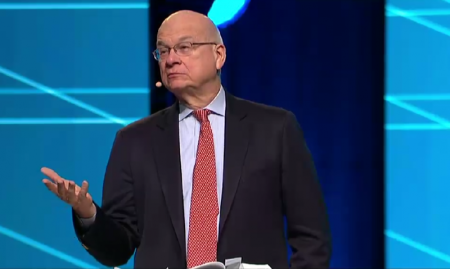Tim Keller: Christians should ask this 1 question before choosing a career

Before choosing a career path, believers should ask themselves, “What gifts do I have, and how can I be useful to other people through my work?” pastor and author Tim Keller has advised.
During a recent desiringGod.org podcast, Keller, founding pastor of Redeemer Presbyterian Church in New York, said that in this “consumeristic age,” people find their identity in the products and brands they consume — and jobs are “like that too.”
“There is just no doubt,” he said. “I see plenty of people taking jobs that really don’t fit. They don’t fit their talents very well, and very often the jobs don’t necessarily fulfill them because the jobs aren’t really helping people very much. But the jobs are high status, and people feel like ‘I need to be in that job so I can feel good about myself.’ It is an identity marker.”
Keller contended that when choosing a career path, many people ask themselves, “How do I take a job that gives me the same kind of sense of self-worth I get when I am driving a particular kind of car?”
Instead, he advised people to choose a job on the basis of vocation and ask themselves, “What gifts do I have, and how can I be useful to other people through my work?”
TheEvery Good Endeavor: Connecting Your Work to God’s Work author stressed that God created people to work — and “all good work done well is God’s calling.”
“Seeing your work as a calling is not a problem if you’re stuck in a job you don’t like,” he said. “You need to say that right now it is still God’s calling and that gives you a lot of peace. You can say, “Hey, I can still answer God’s calling in this job even when I am looking for a job that I think fits my gifts better.”
Earlier, Keller explained that the Christian understanding of vocation is “if you produce a product that makes people’s lives better, even if it's a rather boring process to do it, you are doing God’s work.”
“You are caring for God’s creation. You are serving people’s needs,” he said.
Unfortunately, secular culture promotes the idea that work is about personal fulfillment, excitement, and a paycheck.
“Why does it have to be so incredibly fulfilling when you know that you are doing something that helps people?” he asked. “I do think that is part of what I mean when I say that we have lost the idea of calling, and we are looking now at work as a way of fulfillment, and that actually, in the end, crushes you.”
Grumpiness, anger, or “only doing what I have to do to get by” when it comes to work demonstrates a “lack of a Gospel character,” Keller warned.
“The Gospel helps make you grateful, make you humble, gives you inner peace, makes you generous in your spirit,” he said. “If you just don’t show all those things at work, it means that you are not really letting the Gospel change the heart the way it ought to.”
“In the long run, a Gospel-changed heart usually makes you a pretty good worker,” he concluded. “It makes people want to work with you. It makes people want to be on your team. It makes employers happy with your work. In the long run, having a Gospel-changed heart is pretty practical in the field of work.”
A 2018 survey conducted by the Barna Research Group in collaboration with Abilene Christian University in Texas found positive indicators that people who profess faith in Christ are living their convictions while at work.
The study found that of 1,459 self-identified working American Christians polled, 82 percent "are rooted in a conviction that Christians should act ethically, speak the truth (74 percent) and demonstrate morality (72 percent).”
Additionally, the respondents indicated that "working Christians should make friends with non-Christians (66 percent), withstand temptation (59 percent) and do excellent work in an effort to bring glory to God (58 percent)."
Millennial Christians are the most likely group to say it's completely important for Christians to mold their workplace culture and serve others, polling higher than Gen X and Baby Boomers in that category.
"This could be a wake-up call for church leaders to equip the largest generation in the workforce with a deep vocational understanding," the Barna report concluded.





















